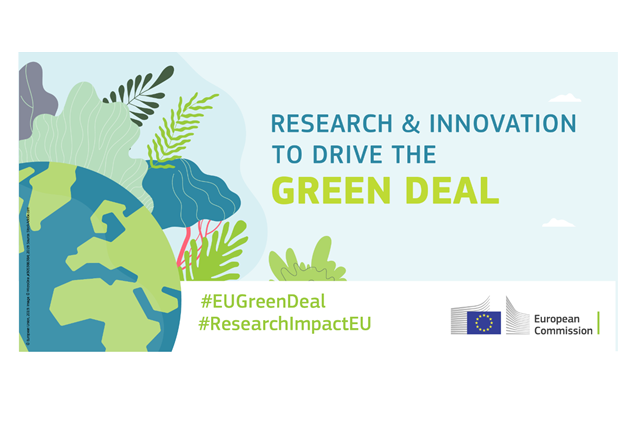
Specific Challenge:
The strategic long-term vision[1] published by the Commission for a prosperous, modern, competitive and climate-neutral economy calls for a drastic reduction of greenhouse gas emissions by 2050.
The European Commission’s Green Deal[2] proposes a new growth strategy that aims to preserve the planet for future generations. It should serve as the compass to emerge from the present COVID-19 crisis and offers the opportunity to bounce forward and accelerate our progress towards meeting the EU climate change objectives. It sets an ambitious target of a 50%-55% reduction of greenhouse gas emissions by 2030. Through its roadmap for action it outlines a long-term vision for the environment, involving all sectors of the economy, geared towards reaching the goal of climate neutrality.
While cities occupy only 2% of the planet’s landmass, they consume over 65% of the world’s energy and account for more than 70% of global man-made CO2 emissions. Currently 75% of European citizens live in cities and this percentage is expected to rise to 80% by 2050. Therefore, cities[3] must play a crucial role in helping Europe reach the targets of the Green Deal. The Commission will support their systemic transformation towards climate neutrality leveraging, in particular, technological, non-technological and social innovation and new AI-based solutions.
The challenge resides with achieving significant progress towards climate neutrality at a large (European) scale by fostering climate-neutrality and social innovation in cities. This means capitalising on existing research and innovation, valorising available knowledge in Europe, and using Green Deal-targeted social, financial, and technological innovation to co-create, test, and deploy systemic, integrated solutions, technologies, and incentive schemes with cities to tackle the largest sources of pollution in urban and metropolitan areas. It also implies designing incentives promoting investments such as green infrastructure into cities committed to climate neutrality and the Green Deal objectives. This will help test innovative solutions, technologies, and incentives to reach the scale that will make them attractive for industry economically, for citizens in terms of affordability, liveability, and inclusiveness, and for local authorities as concern effectiveness, efficiency, and quality of life. Testing these solutions and incentives will require listening to the needs of citizens and engaging cities to act. Framing the above-mentioned elements necessitates taking into account the consequences and long-lasting impacts on cities of the current health and economic crisis, affecting for example mobility, transportation, urban planning, digitisation, provision of services, etc. It requires triggering and supporting lasting changes in social, business, and administrative practices and in individual behaviours with clear impacts on the reduction of greenhouse gas emissions, air pollution and other co-benefits that citizens, businesses and public authorities find desirable.
Follow this content for more information or to declare your interest in this call
[1] https://ec.europa.eu/clima/policies/strategies/2050_en[2] https://ec.europa.eu/commission/sites/beta-political/files/political-guidelines-next-commission_en.pdf
[3] For the purposes of this topic “cities” should be intended as either city district (neighbourhood or zone of special interest of a city administered or governed by some type of “district council”), a city represented by a government unit (e.g. municipality) or an urban area (conglomeration or a functional area composed of many neighbouring cities or government units, represented by the respective government units).
[4] E.g. Smart Cities Marketplace and its Matchmaking facility: https://eu-smartcities.eu
[5] https://www.covenantofmayors.eu

